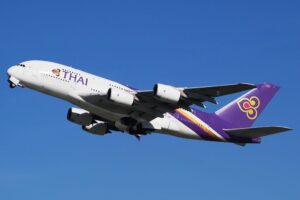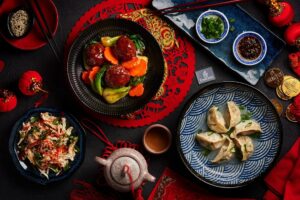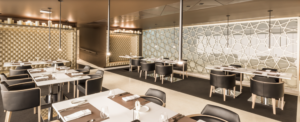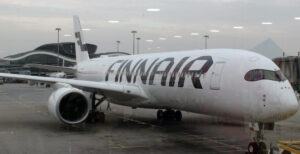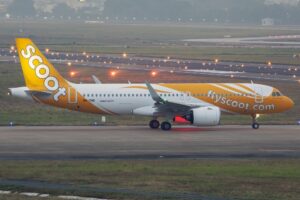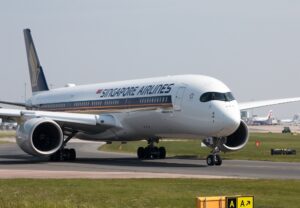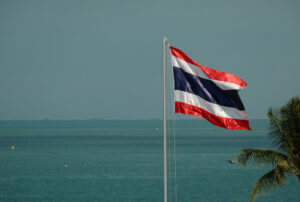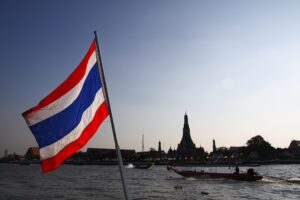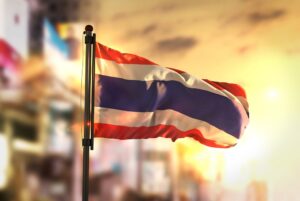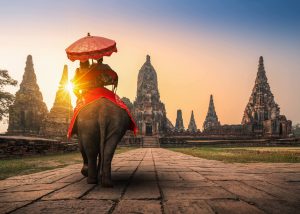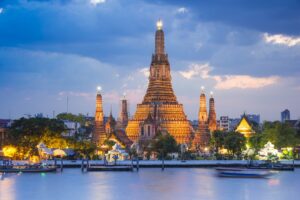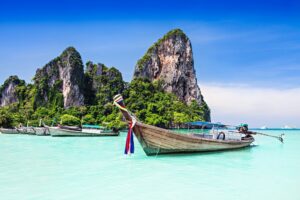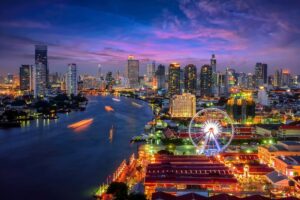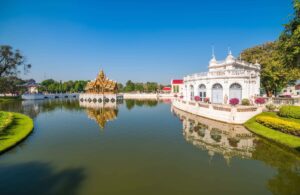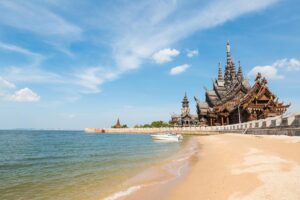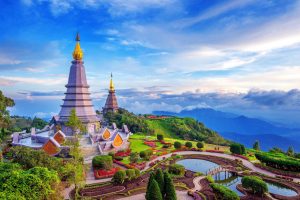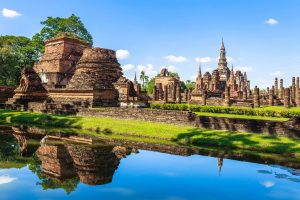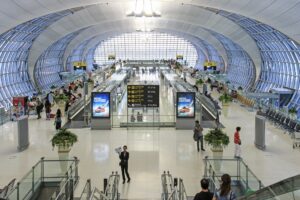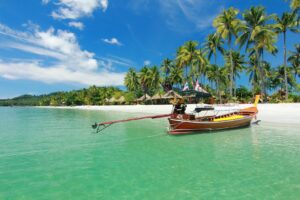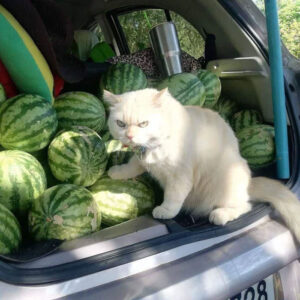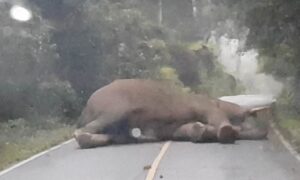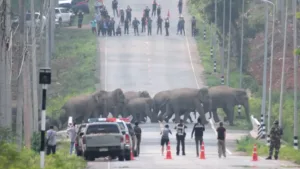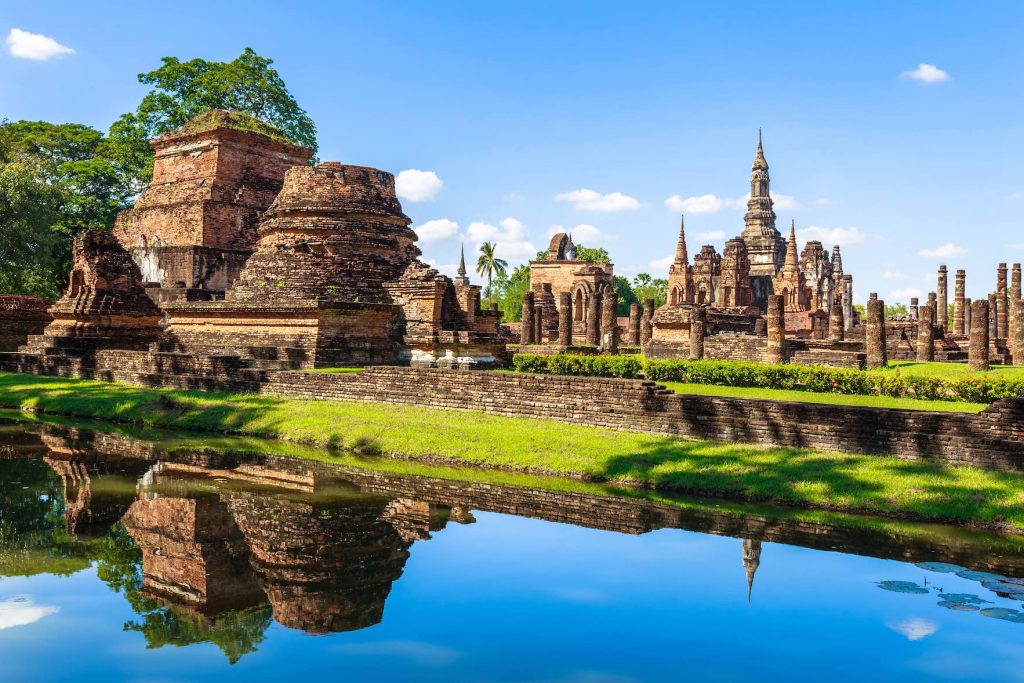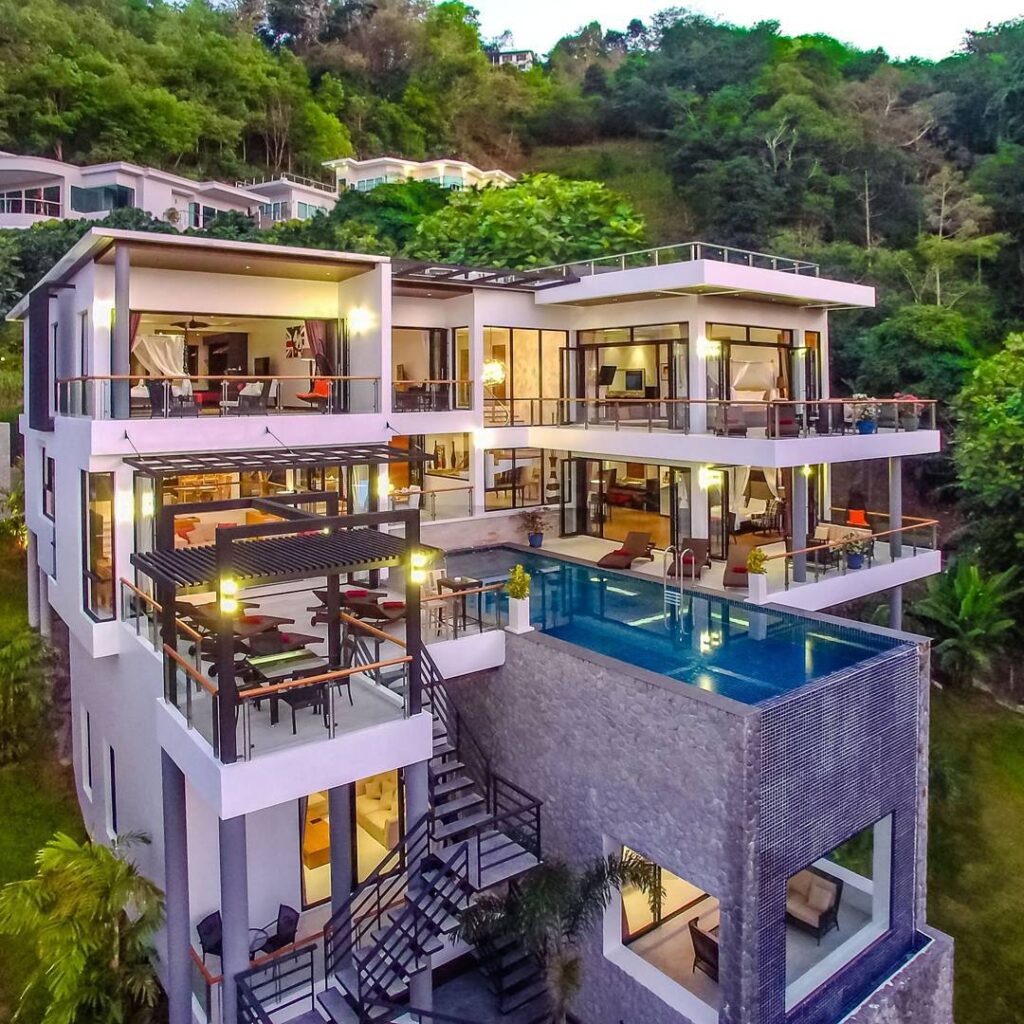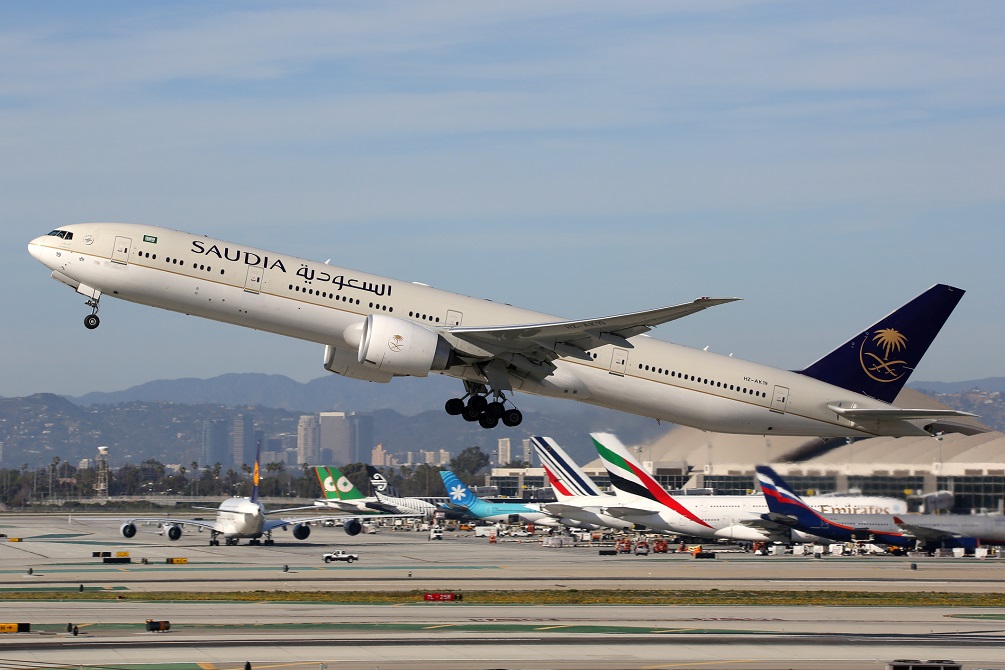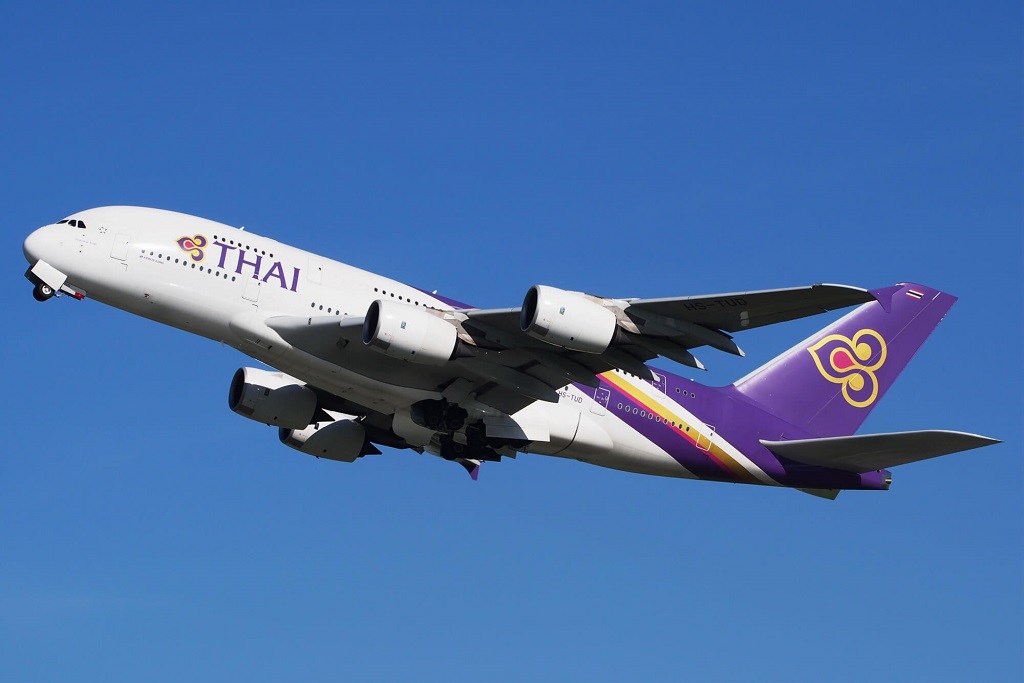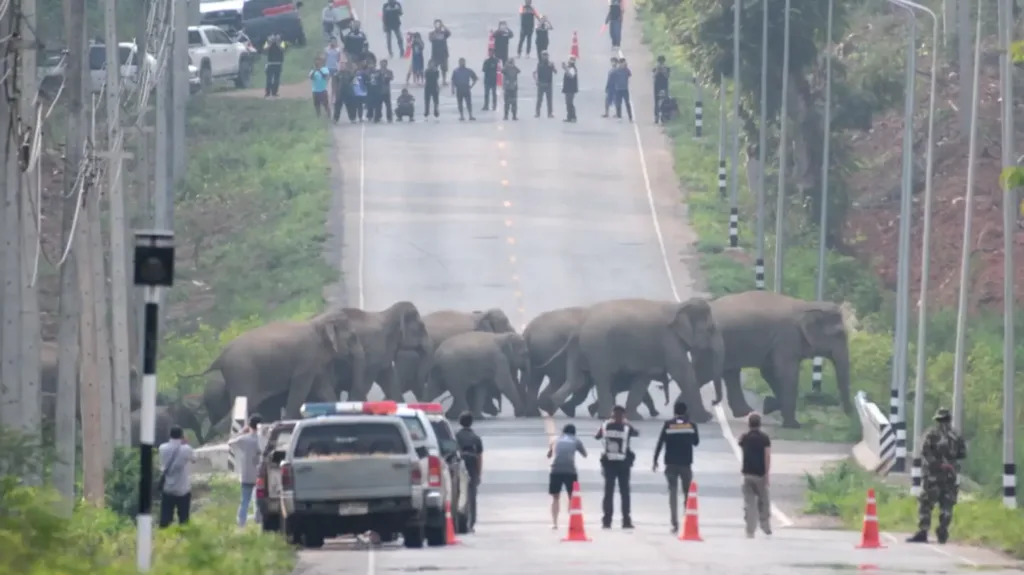Thailand
Travel to Thailand, Asia’s main tourist destination that offers a plethora of spectacular experiences, including a rich heritage and culture, delicious cuisine, and stunning natural beauty.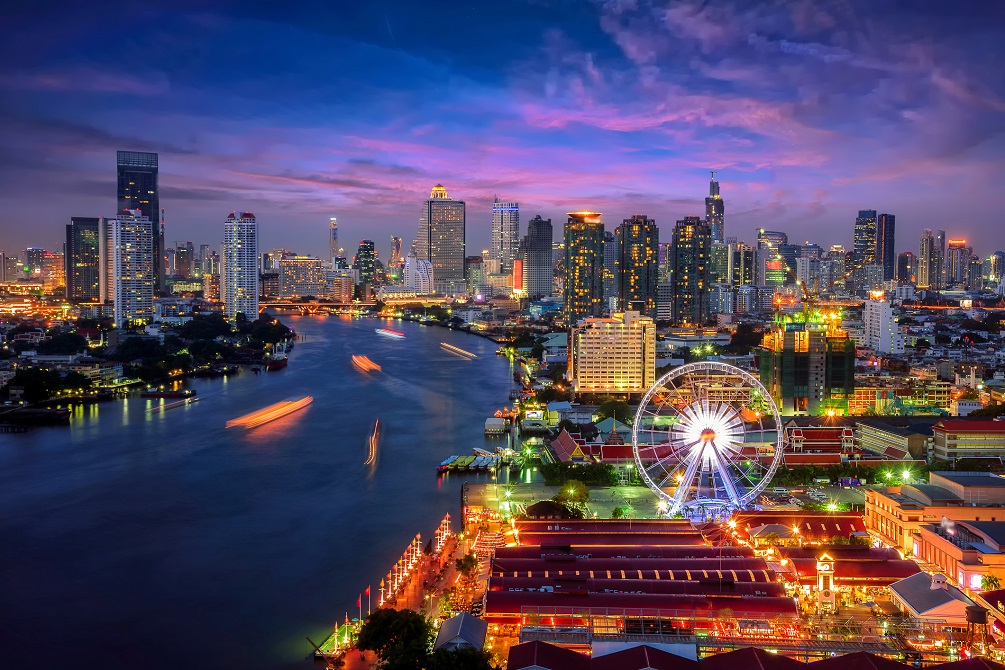
A friendly destination, Thailand tempts travelers with a mix of food and fun, culture and calm, history and hedonism. With tropical beaches, a throbbing nightlife, shimmering temples, and lofty skyscrapers. Thailand is truly a hotspot with many attractions.
Begin your journey in Bangkok, where vibrant markets, flashy malls, and resplendent shrines, sit alongside intriguing museums, scrumptious street food stands, and some of the best restaurants and rooftop bars.
To immerse yourself in history and culture, head to Chiang Mai, which has a compelling tradition of arts and crafts. Here, you can enjoy a variety of experiences from cookery classes and trekking to massages, meditation, and colorful festivals like Songkhran.
For a tropical escape, head to the Samui archipelago. Ko Samui, will captivate you with its pristine beaches while Ko Pha Ngan, will give you the chance to explore coves and Hat Rin, the party hotspot of Thailand.
If trekking and exploring ruins and heritage are what interests you, make a detour to the Central Plains, where you can’t miss the towering stupa Phra Pathom Chedi, overlooking the skyline.
No visit to Thailand is complete without dropping by Phuket, its top tourist destination. Discover a number of fine beaches and interesting nightlife. Koh Phi Phi is another party pitstop that you could drop by.
For a family vacation, Ko Lanta is a good forested area to explore, while those seeking a jungle escape can head to the rain forests of the Khao Sok National Park.
For unspoiled beaches, visit the mainland of Trang, which has a long stretch of sands, caves, and mangroves, with sports like snorkeling.
Khao Yai National Park has been designated as a UNESCO World Heritage Site and is rich in biodiversity with an abundance of flora and fauna. It houses more than 300 birds and 20 land-mammal species.
If you’re looking for a sun-kissed paradise with immaculate beaches, emerald forests, sumptuous food, and colorful culture, Thailand is just the place for you.
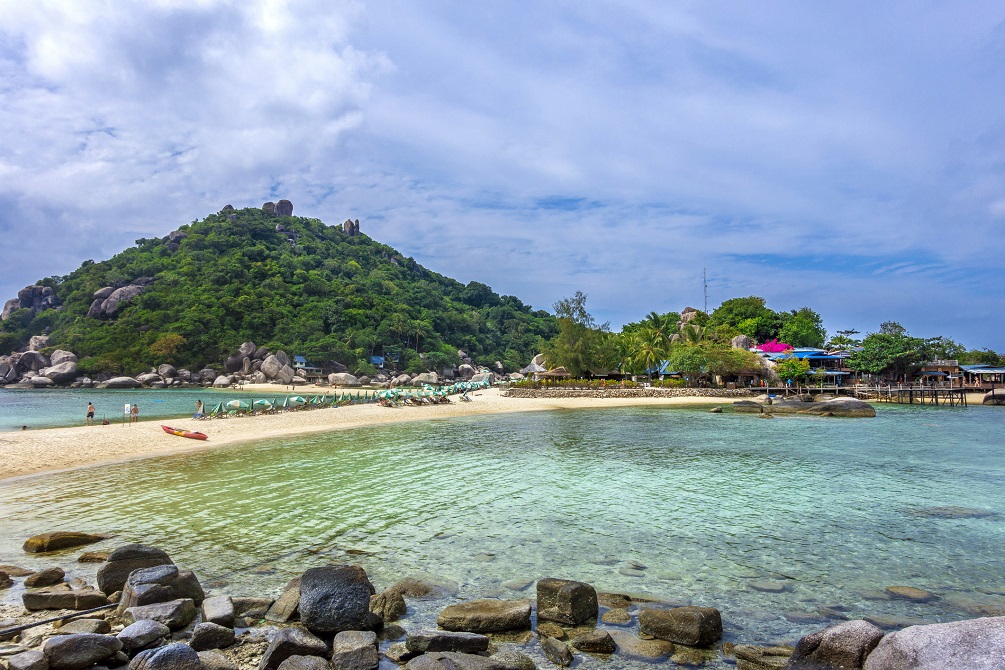


Thailand is at the very heart of South-East Asia. Myanmar shares its border in the West and Laos to the East. Malaysia and the Gulf of Thailand lies to its South. With an area stretching over 513,120 kilometers, it is approximately the size of Spain or Texas.
Mountains and hills spread across 20% of Thailand’s area, while almost 30% of its area is covered by woods and forests. Its southern area comprises limestone formations, beaches, and rain forests. It has a long coastline spanning around 3,219 kilometers with 750 kilometers on the Andaman Seaside and 2469 kilometers on the Gulf of Thailand side.
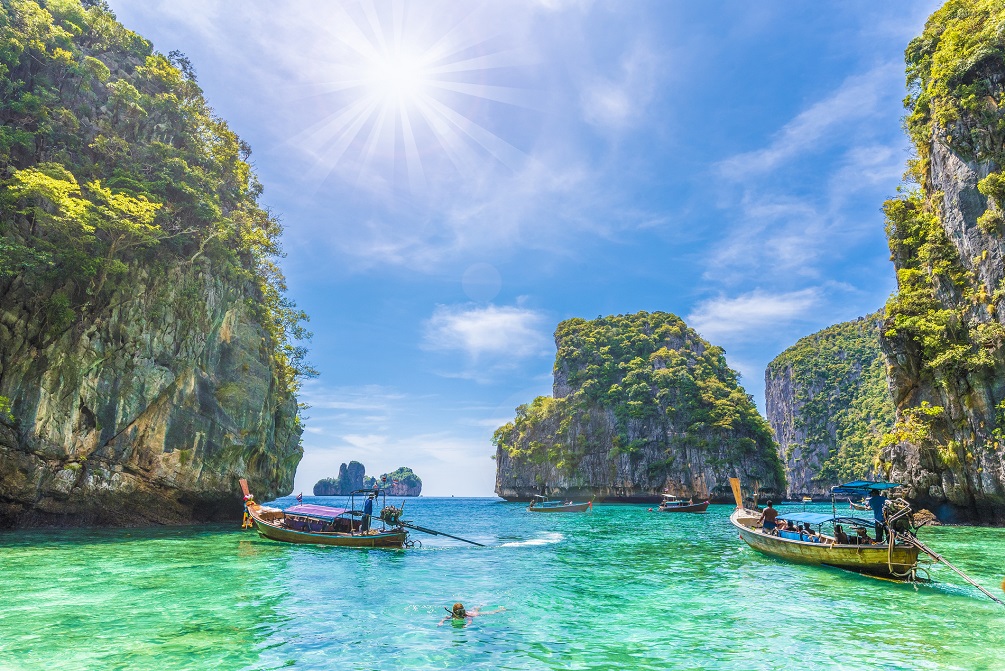


Thailand being a tropical country, is expectedly hot and humid. April is very hot, when temperatures could run up to 30C. March until April is the summer season, while the monsoons begin from May or June and run until October. Thailand experiences torrential rain, but the climate is still quite humid during this time.
The south of Thailand experiences rain until December. November to March is the preferred season to travel to Thailand, when the monsoon season nears to a close and the summer is yet to set in.
June to September are the best months for visiting islands like the Koh Samui, where temperatures are around 27-28C.
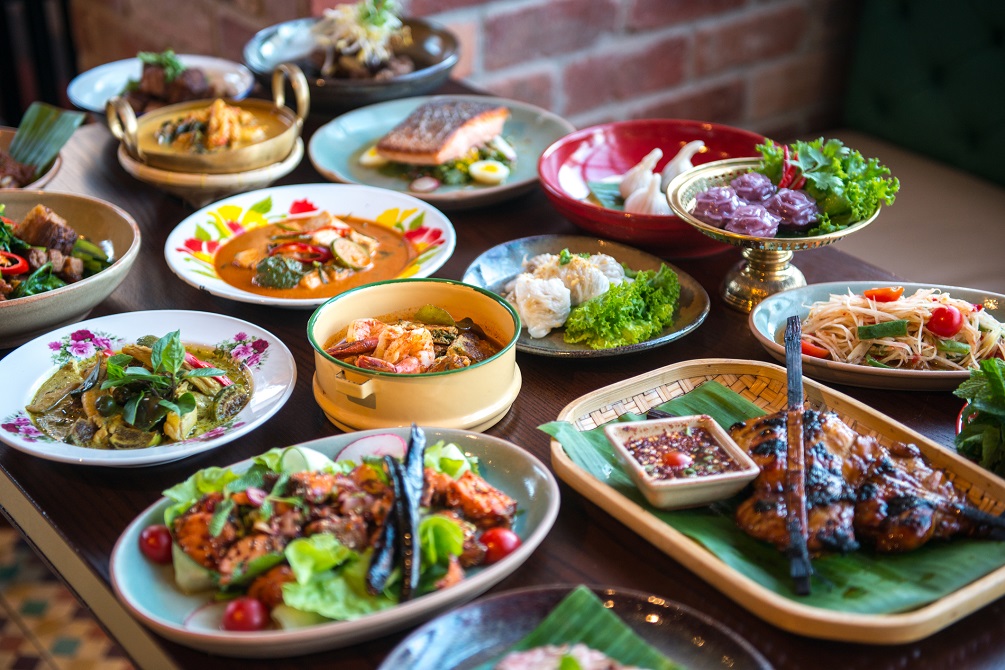


Thai cuisine has become one of the most popular types of cuisine globally. Thai meals usually balance five main flavours: sour, salty, bitter, spicy and sweet.
Since Thailand is a vast country, its cuisine differs from region to region viz. the Northern, North Eastern, Central and Southern regions of the country. For instance, Southern curries utilise turmeric and coconut milk, while lime juice is used in North-Eastern dishes.
Initially, Thai cuisine was inspired by Chinese cuisine. Other Asian countries like Vietnam, Indonesia, Cambodia and Malaysia have also influenced Thai cuisine to a large extent. However, over the years, Thai cuisine has gradually evolved and has now come into its own.
Thai curries are a much-relished favourite and are prepared using a complex mix of local ingredients, like lemongrass, Thai holy basil and galangal.
Rice occupies a prime position in Thai cuisine. While there are many varieties of rice served, the most common are sticky rice and Jasmine rice.
You’ll find snacks served all across Thailand. If you want a quick pick-me-up, sink your teeth into some chicken or beef satay and spring rolls or slurp up some soup.
The most popular and coveted dishes in Thailand are Tom Kha Khai, which is chicken strips in coconut soup; Gaeng Daeng, the famous red curry made with chicken or beef; Pad Thai, thin or wide noodles with a dressing of peanuts, chilli and fish sauce; Gaeng Keow Wan Kai, chicken green curry and Kai Med Ma Muang, chicken cashew nut.
Don’t miss tucking into some delicious Thai desserts like the Thai-styled creme caramel, custard-filled bread, mango sticky rice and Thai jelly.
Apart from taste, the presentation of a dish is given great importance, with the art of carving coming together with beautifully decorated meals.
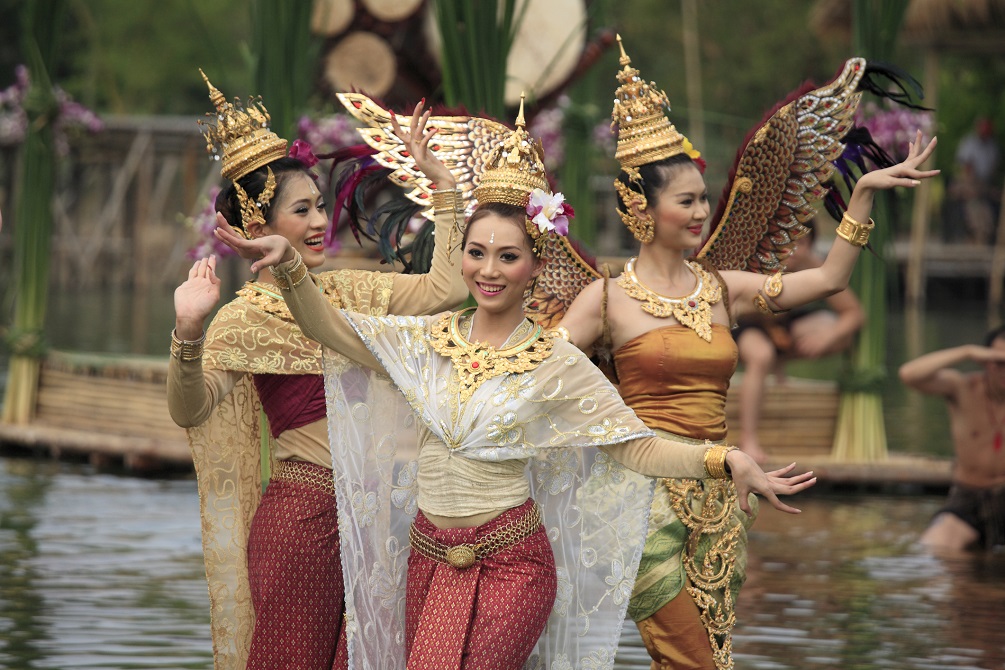


Thailand is warm and humid almost throughout the year. So, leave your winter clothing at home.
Women can carry skirts, dresses, shorts, and tops. Make sure that your shoulders are covered and your collar line is fairly high. Ensure that there isn’t any exposure of cleavage. Also, it is best to avoid tank tops and spaghetti straps. Shorts may be worn as long as they are not too short.
For men, the best things to pack are collared shirts, polo shirts, t-shirts and bermuda shorts. Do carry some semi-formal pants for a night out. Avoid vests or sleeveless shirts.
For footwear, comfort is king. Since it rains often, shoes made of rubber or plastic are preferred. Choose flat shoes and take a pass on the heels.
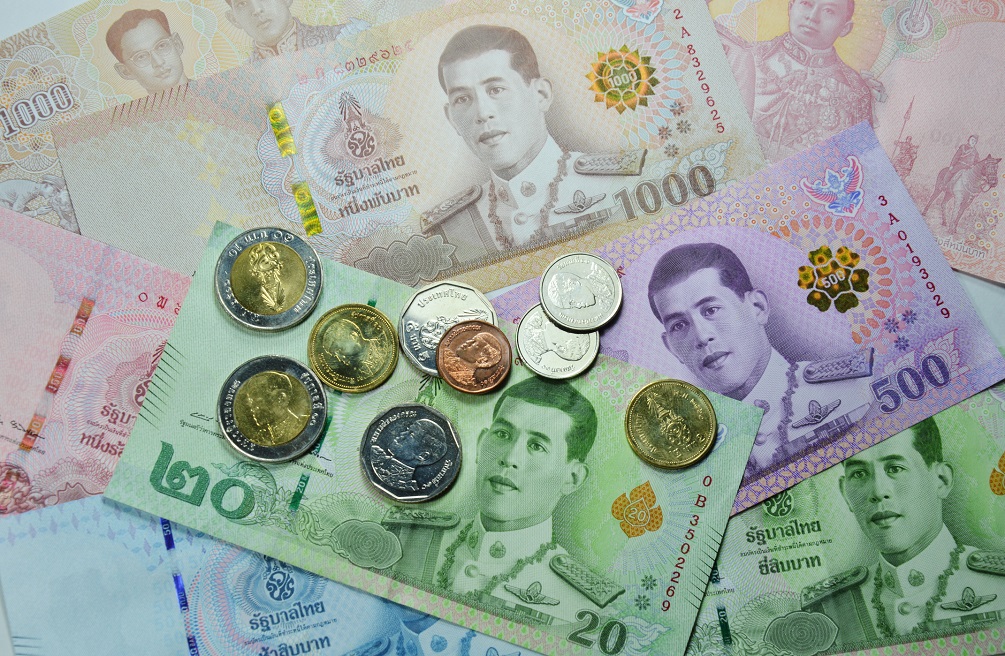


Thai Baht is the official currency of Thailand. One Thai Baht consists of 100 Satangs. The symbol ‘?’ is used to denote the Thai Baht currency.
At the time of writing this, 1 UK Pound Sterling was equal to 43.85 Thai Baht.
When you travel to Thailand, you can exchange UK pounds at the airport. You can also change traveler checks here, quite easily. It costs 33 baht to cash in a travelers check, so bringing a bigger denomination is recommended.
Thai baht can be used for cheaper buys in restaurants and smaller stores.
You can also withdraw Thai baht from ATMs in Thailand and major debit and credit cards are accepted.
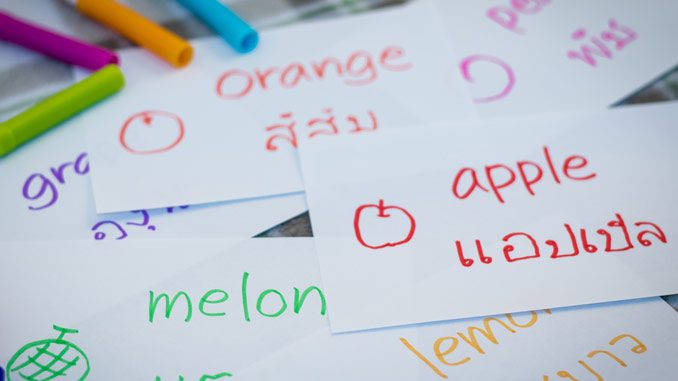


The national language of Thailand is Thai, and it is its only language.
While Thai is spoken all across Thailand, many locals are also conversant in English, especially in Bangkok and main tourist areas. Thai language is challenging to learn as it consists of 44 consonants, 18 vowels, and 4 diphthongs.
Since Thailand gets tourists from around the world, most Thais will speak English and you shouldn’t face much of a problem.
Luckily, directional signages are written in both Thai and English. You can pick up maps and other literature in both Thai and English to help you get around.
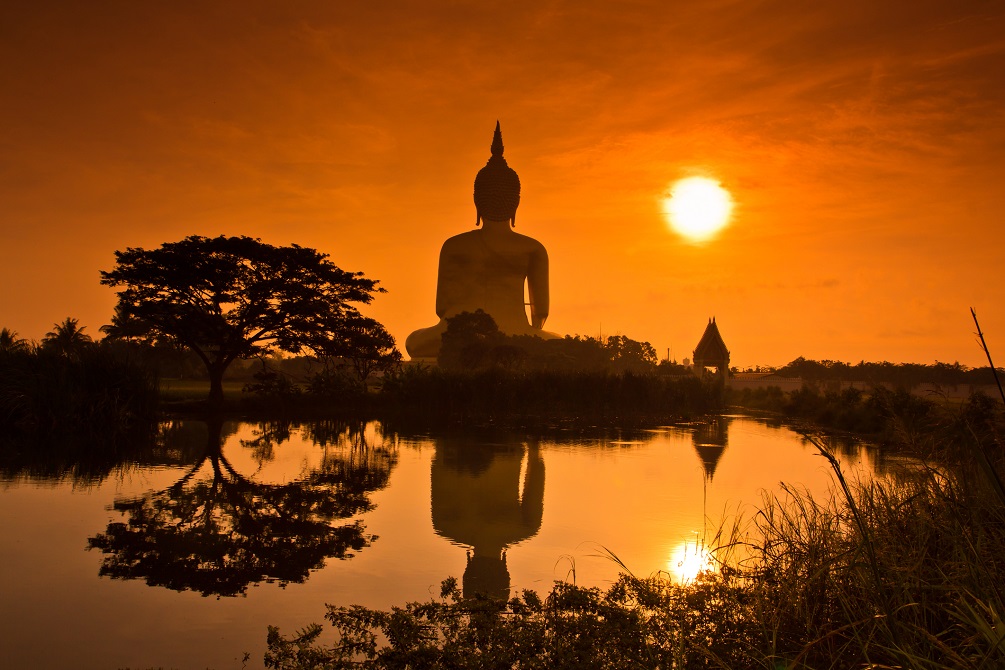


Thai customs are influenced by Buddhism as almost 90% of the country follows Buddhism.
They use a gesture called “wai” while greeting people. It is a sign of respect. “Wai” is formed by placing your palms together like a prayer, just above your nose and bowing slightly.
The Thais value all things refined and polite and try to avoid rude or coarse behavior. The main Thai expression is a peaceful and warm smile, that reflects the friendly and hospitable nature of its people.
Personal space is important and public displays of affection are not encouraged. Avoid touching someone’s head as the head is believed to be sacred and touching it is a big no-no.
Elderly people are shown much respect in Thailand. So are Buddhist monks. They are held in such high regard, that they are protected by law.
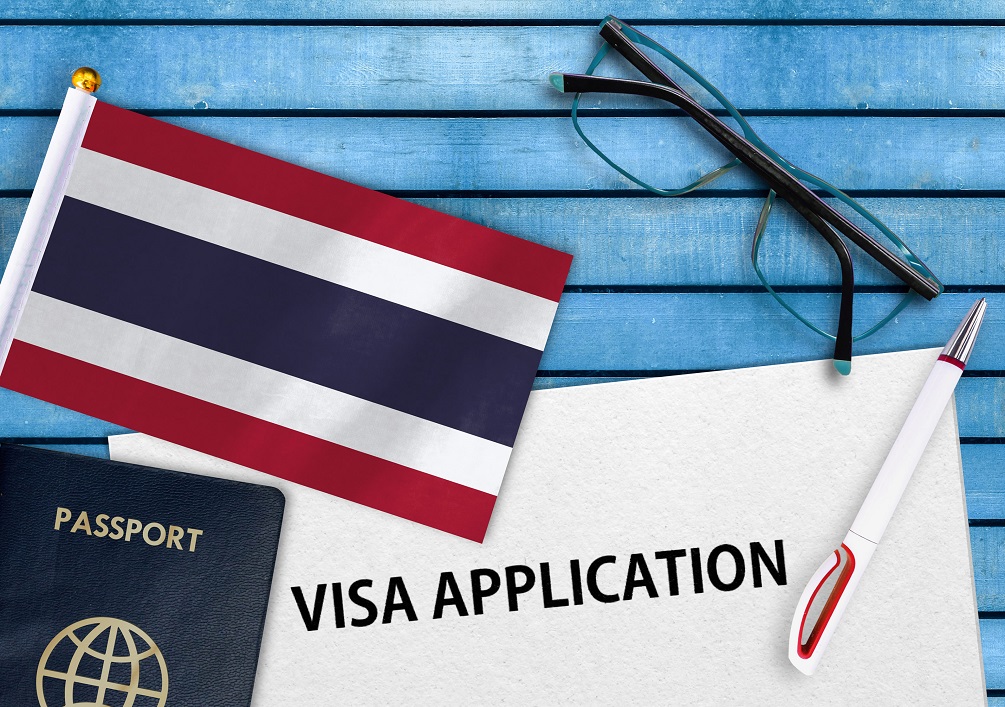


Under normal circumstances, a British passport holder can travel to Thailand without a visa for 30 days. If you want to extend your stay beyond that, you need to make an application for an extension before the end of the thirty-day period.
There should be at least a 6 months validity on your passport from your date of entry into Thailand.
You will be denied entry if your passport is damaged or if there are missing pages.
Dual nationals are required to depart Thailand on the same nationality passport that was used to enter.
Extending your stay can only be done through a Thai Embassy, an Immigration office in the country or an Immigration officer at the entry point into Thailand.
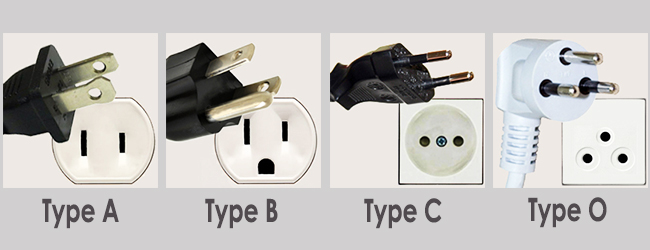


The standard voltage in Thailand is 220V and the frequency is 50 Hz.
The sockets and power plugs are type A, B, C, F and O.
The standard voltage in the UK is in between 220-240V. Hence, you can use your electronic appliances in Thailand. Be especially careful while plugging in rotating and moving appliances like shavers, clocks or heaters.
It is important to know that power plug adapters do not convert voltages and can only convert plug types.
Check out the fine print on your appliance to see if it can manage the frequency. If you see 100-240V 50/60Hz printed, the adapter can handle all voltages across the world.



A friendly destination, Thailand tempts travelers with a mix of food and fun, culture and calm, history and hedonism. With tropical beaches, a throbbing nightlife, shimmering temples, and lofty skyscrapers. Thailand is truly a hotspot with many attractions.
Begin your journey in Bangkok, where vibrant markets, flashy malls, and resplendent shrines, sit alongside intriguing museums, scrumptious street food stands, and some of the best restaurants and rooftop bars.
To immerse yourself in history and culture, head to Chiang Mai, which has a compelling tradition of arts and crafts. Here, you can enjoy a variety of experiences from cookery classes and trekking to massages, meditation, and colorful festivals like Songkhran.
For a tropical escape, head to the Samui archipelago. Ko Samui, will captivate you with its pristine beaches while Ko Pha Ngan, will give you the chance to explore coves and Hat Rin, the party hotspot of Thailand.
If trekking and exploring ruins and heritage are what interests you, make a detour to the Central Plains, where you can’t miss the towering stupa Phra Pathom Chedi, overlooking the skyline.
No visit to Thailand is complete without dropping by Phuket, its top tourist destination. Discover a number of fine beaches and interesting nightlife. Koh Phi Phi is another party pitstop that you could drop by.
For a family vacation, Ko Lanta is a good forested area to explore, while those seeking a jungle escape can head to the rain forests of the Khao Sok National Park.
For unspoiled beaches, visit the mainland of Trang, which has a long stretch of sands, caves, and mangroves, with sports like snorkeling.
Khao Yai National Park has been designated as a UNESCO World Heritage Site and is rich in biodiversity with an abundance of flora and fauna. It houses more than 300 birds and 20 land-mammal species.
If you’re looking for a sun-kissed paradise with immaculate beaches, emerald forests, sumptuous food, and colorful culture, Thailand is just the place for you.



Thailand is at the very heart of South-East Asia. Myanmar shares its border in the West and Laos to the East. Malaysia and the Gulf of Thailand lies to its South. With an area stretching over 513,120 kilometers, it is approximately the size of Spain or Texas.
Mountains and hills spread across 20% of Thailand’s area, while almost 30% of its area is covered by woods and forests. Its southern area comprises limestone formations, beaches, and rain forests. It has a long coastline spanning around 3,219 kilometers with 750 kilometers on the Andaman Seaside and 2469 kilometers on the Gulf of Thailand side.



Thailand being a tropical country, is expectedly hot and humid. April is very hot, when temperatures could run up to 30C. March until April is the summer season, while the monsoons begin from May or June and run until October. Thailand experiences torrential rain, but the climate is still quite humid during this time.
The south of Thailand experiences rain until December. November to March is the preferred season to travel to Thailand, when the monsoon season nears to a close and the summer is yet to set in.
June to September are the best months for visiting islands like the Koh Samui, where temperatures are around 27-28C.



Thai cuisine has become one of the most popular types of cuisine globally. Thai meals usually balance five main flavours: sour, salty, bitter, spicy and sweet.
Since Thailand is a vast country, its cuisine differs from region to region viz. the Northern, North Eastern, Central and Southern regions of the country. For instance, Southern curries utilise turmeric and coconut milk, while lime juice is used in North-Eastern dishes.
Initially, Thai cuisine was inspired by Chinese cuisine. Other Asian countries like Vietnam, Indonesia, Cambodia and Malaysia have also influenced Thai cuisine to a large extent. However, over the years, Thai cuisine has gradually evolved and has now come into its own.
Thai curries are a much-relished favourite and are prepared using a complex mix of local ingredients, like lemongrass, Thai holy basil and galangal.
Rice occupies a prime position in Thai cuisine. While there are many varieties of rice served, the most common are sticky rice and Jasmine rice.
You’ll find snacks served all across Thailand. If you want a quick pick-me-up, sink your teeth into some chicken or beef satay and spring rolls or slurp up some soup.
The most popular and coveted dishes in Thailand are Tom Kha Khai, which is chicken strips in coconut soup; Gaeng Daeng, the famous red curry made with chicken or beef; Pad Thai, thin or wide noodles with a dressing of peanuts, chilli and fish sauce; Gaeng Keow Wan Kai, chicken green curry and Kai Med Ma Muang, chicken cashew nut.
Don’t miss tucking into some delicious Thai desserts like the Thai-styled creme caramel, custard-filled bread, mango sticky rice and Thai jelly.
Apart from taste, the presentation of a dish is given great importance, with the art of carving coming together with beautifully decorated meals.



Thailand is warm and humid almost throughout the year. So, leave your winter clothing at home.
Women can carry skirts, dresses, shorts, and tops. Make sure that your shoulders are covered and your collar line is fairly high. Ensure that there isn’t any exposure of cleavage. Also, it is best to avoid tank tops and spaghetti straps. Shorts may be worn as long as they are not too short.
For men, the best things to pack are collared shirts, polo shirts, t-shirts and bermuda shorts. Do carry some semi-formal pants for a night out. Avoid vests or sleeveless shirts.
For footwear, comfort is king. Since it rains often, shoes made of rubber or plastic are preferred. Choose flat shoes and take a pass on the heels.



Thai Baht is the official currency of Thailand. One Thai Baht consists of 100 Satangs. The symbol ‘?’ is used to denote the Thai Baht currency.
At the time of writing this, 1 UK Pound Sterling was equal to 43.85 Thai Baht.
When you travel to Thailand, you can exchange UK pounds at the airport. You can also change traveler checks here, quite easily. It costs 33 baht to cash in a travelers check, so bringing a bigger denomination is recommended.
Thai baht can be used for cheaper buys in restaurants and smaller stores.
You can also withdraw Thai baht from ATMs in Thailand and major debit and credit cards are accepted.



The national language of Thailand is Thai, and it is its only language.
While Thai is spoken all across Thailand, many locals are also conversant in English, especially in Bangkok and main tourist areas. Thai language is challenging to learn as it consists of 44 consonants, 18 vowels, and 4 diphthongs.
Since Thailand gets tourists from around the world, most Thais will speak English and you shouldn’t face much of a problem.
Luckily, directional signages are written in both Thai and English. You can pick up maps and other literature in both Thai and English to help you get around.



Thai customs are influenced by Buddhism as almost 90% of the country follows Buddhism.
They use a gesture called “wai” while greeting people. It is a sign of respect. “Wai” is formed by placing your palms together like a prayer, just above your nose and bowing slightly.
The Thais value all things refined and polite and try to avoid rude or coarse behavior. The main Thai expression is a peaceful and warm smile, that reflects the friendly and hospitable nature of its people.
Personal space is important and public displays of affection are not encouraged. Avoid touching someone’s head as the head is believed to be sacred and touching it is a big no-no.
Elderly people are shown much respect in Thailand. So are Buddhist monks. They are held in such high regard, that they are protected by law.



Under normal circumstances, a British passport holder can travel to Thailand without a visa for 30 days. If you want to extend your stay beyond that, you need to make an application for an extension before the end of the thirty-day period.
There should be at least a 6 months validity on your passport from your date of entry into Thailand.
You will be denied entry if your passport is damaged or if there are missing pages.
Dual nationals are required to depart Thailand on the same nationality passport that was used to enter.
Extending your stay can only be done through a Thai Embassy, an Immigration office in the country or an Immigration officer at the entry point into Thailand.



The standard voltage in Thailand is 220V and the frequency is 50 Hz.
The sockets and power plugs are type A, B, C, F and O.
The standard voltage in the UK is in between 220-240V. Hence, you can use your electronic appliances in Thailand. Be especially careful while plugging in rotating and moving appliances like shavers, clocks or heaters.
It is important to know that power plug adapters do not convert voltages and can only convert plug types.
Check out the fine print on your appliance to see if it can manage the frequency. If you see 100-240V 50/60Hz printed, the adapter can handle all voltages across the world.
Travel related news, information and inspirational articles and videos for travellers booking flights or holidays to Thailand. Ask questions about travel in Thailand and get answers from Thailand experts
NEWS
Inspiration, Information and Travel Guides
MEET THE Thailand EXPERTS
If you are looking to book a holiday to Thailand or needs some help and advice planning travel to Thailand then contact one of the UK based independent travel agents that specialise in Thailand itineraries.
FEATURED VIDEOS
Your Travel Questions Answered
Ask any travel related question and get an answer from one of our experts that will provide you with an answer from their personal experience
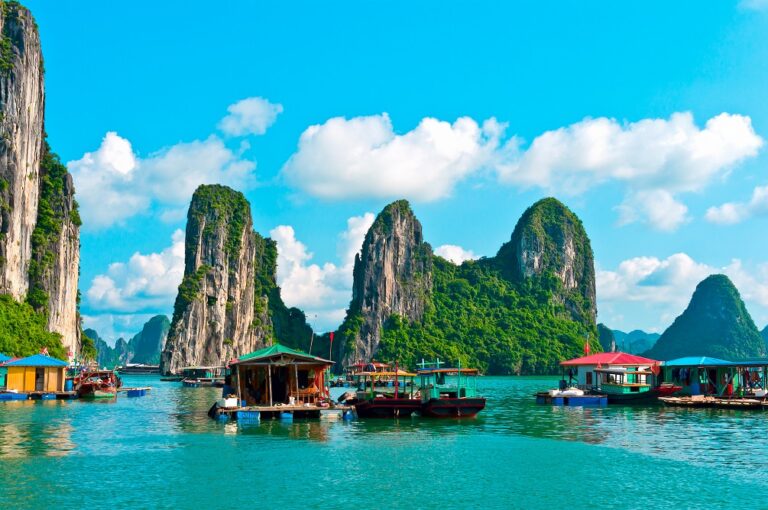

Will be traveling through Thailand, Laos, Cambodia, and Vietnam for a month. What essentials should I pack?
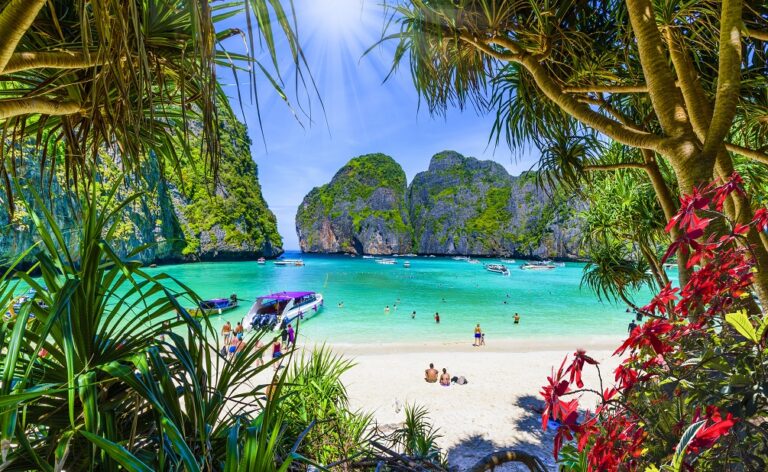

I want to avoid overly touristy activities when travelling. However, the Phi Phi islands look stunning. Is it worth the crowds for a chance to experience them?
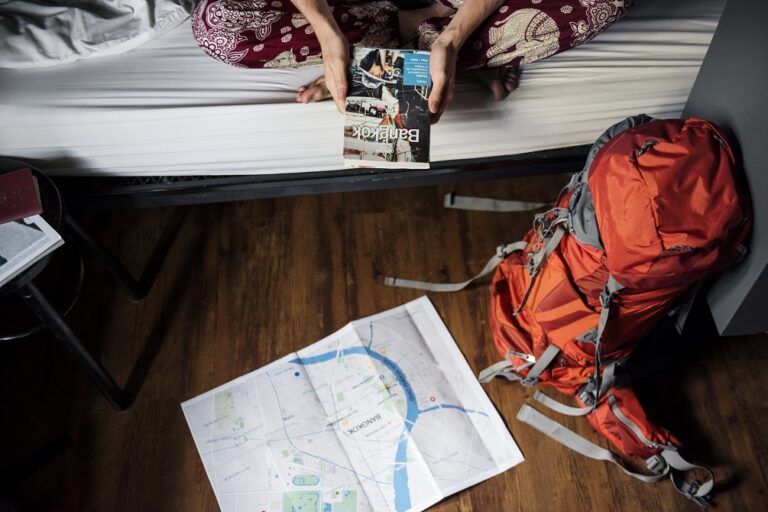

I heard that backpacker hostel are extremely cheap and that it’s super convenient for travelers who travel lightly. Just wondering if it's actually safe, in terms of sharing the room with other guests and the locations of these hostels.
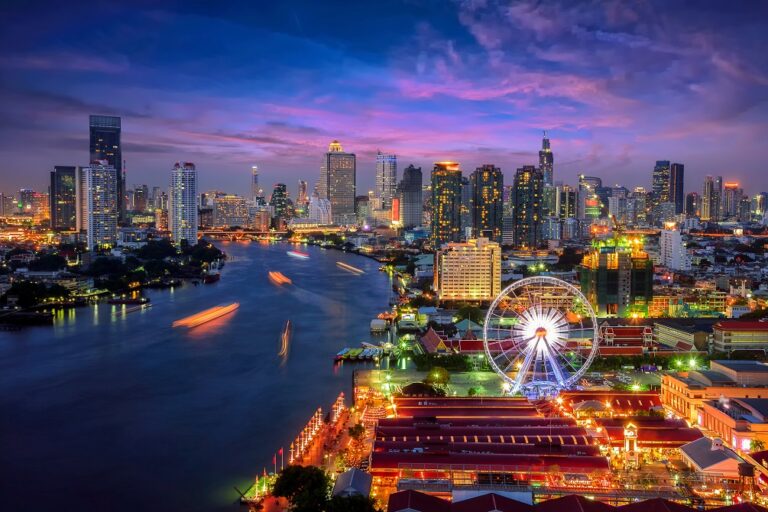

My family and I are visiting Phuket and Bangkok next month. We are looking for some fun and interesting tour activities that we can enjoy together as a family.
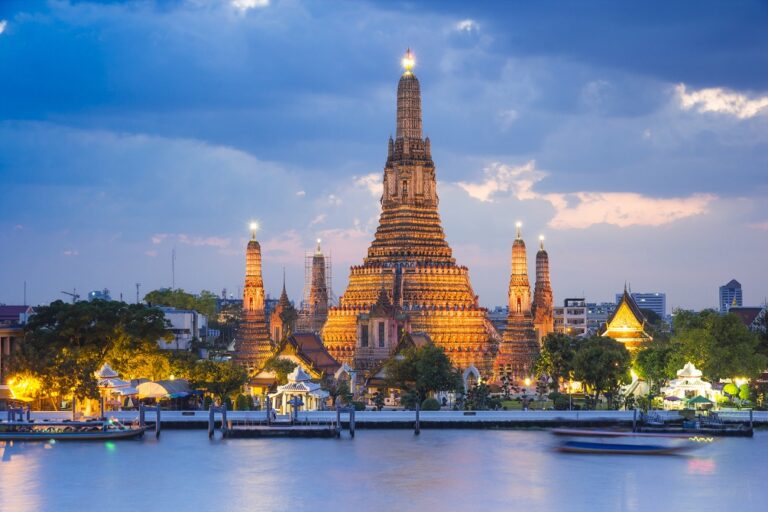


My family is going on a trip to Thailand and we are also taking our teenage child with us. We are mainly going to travel within the Phuket Province. Since this would be my first time visiting with my family, I am concerned as we might stumble upon areas with adult scenes that would be inappropriate to see for a child. Should I be concerned about that or no?
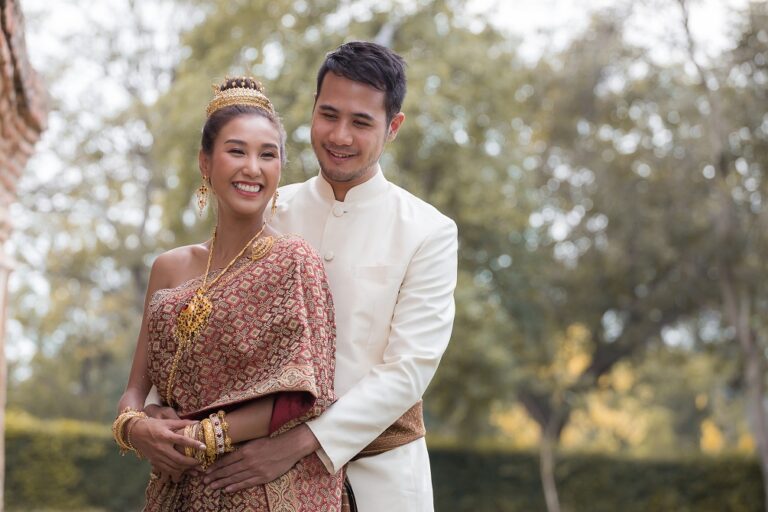

My fiancé and I have always wanted a destination wedding. Both of us really love the idea of tying the knot in beautiful Thailand, but we are unsure of what this entails, for example, aside from our passports, what other important documents are required for foreigners marrying in “The Land of Smiles”?


My friends and I are looking for the perfect tropical island destination in South East Asia. None of us have been to this part of the world yet, so we are hoping to get some good island recommendations which have plenty to offer in terms of recreational activities and sightseeing.



I’m visiting Bangkok soon. The Bridge over the River Kwai has always been on my bucket list. Is it possible to visit on a day trip from Bangkok? What’s the best way to get there?
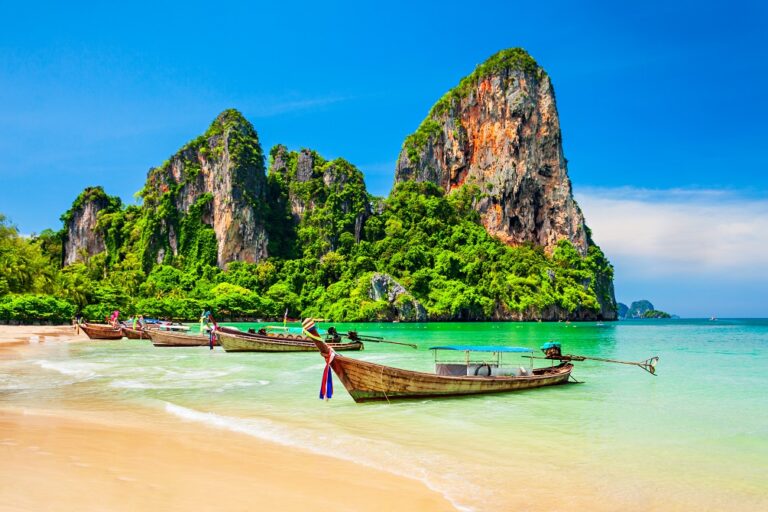

I'm looking into booking a trip to Koh Samui with my young daughter soon. We like to stay in an area with a lovely beach. Where is the best area in Koh Samui for families?
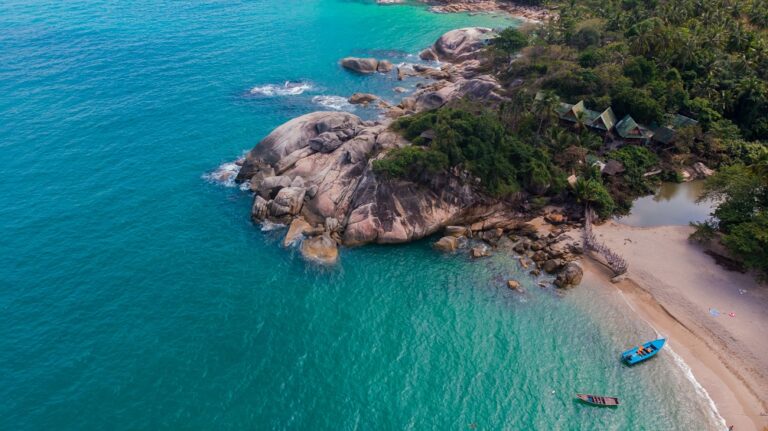

We’re planning a family trip to Koh Phangan, Thailand, but we’re a little worried about how party orientated guides to the island seem to be. Although we don’t mind parties, we’ll have our two kids with us, and we don’t want this to ruin our trip. What is the best area in Koh Phangan for families?
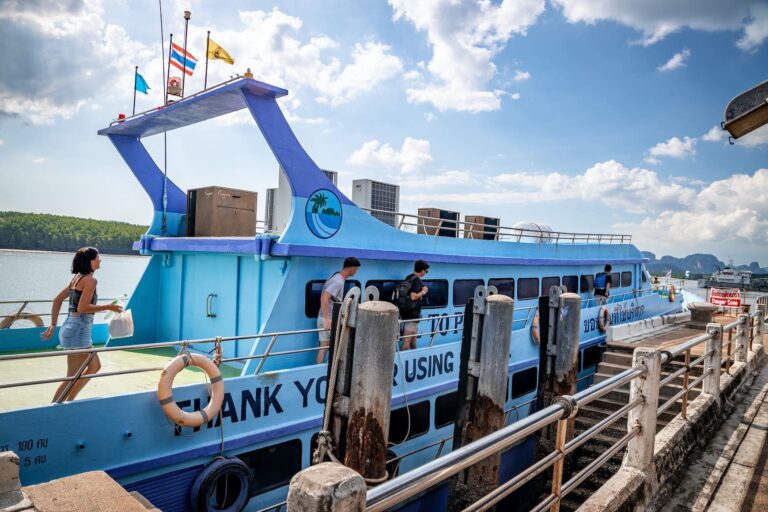

Since backpacking through Asia myself a few years ago, I’ve always wanted to bring my daughter to Thailand. We’re planning on visiting Koh Lanta. We’re flying into Krabi. What’s the best way to get from Krabi airport to Koh Lanta?
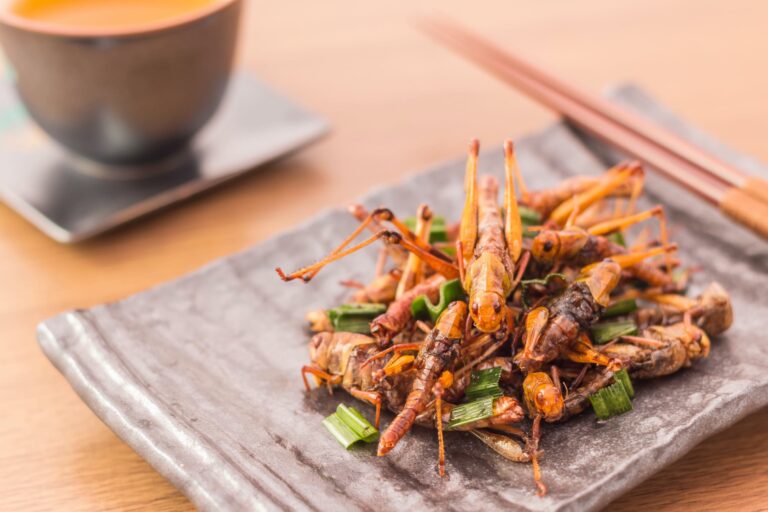

My friends and I are from the UK and want to visit Thailand since they will open to vaccinated tourists in the near future. We want to do all the crazy things tourists usually do in Thailand, including eating insects at the night markets in Bangkok. Is it safe to eat insects at the markets in Thailand?
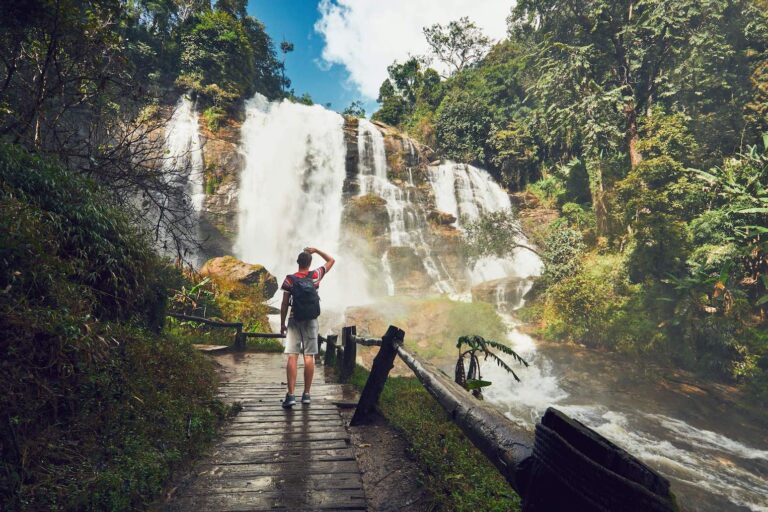

I am travelling to Thailand with my wife and kids soon but since it is a tropical country, I am a bit worried about the mosquito situation in Thailand. Would you recommend any vaccination or do I need malaria pills for Thailand?

